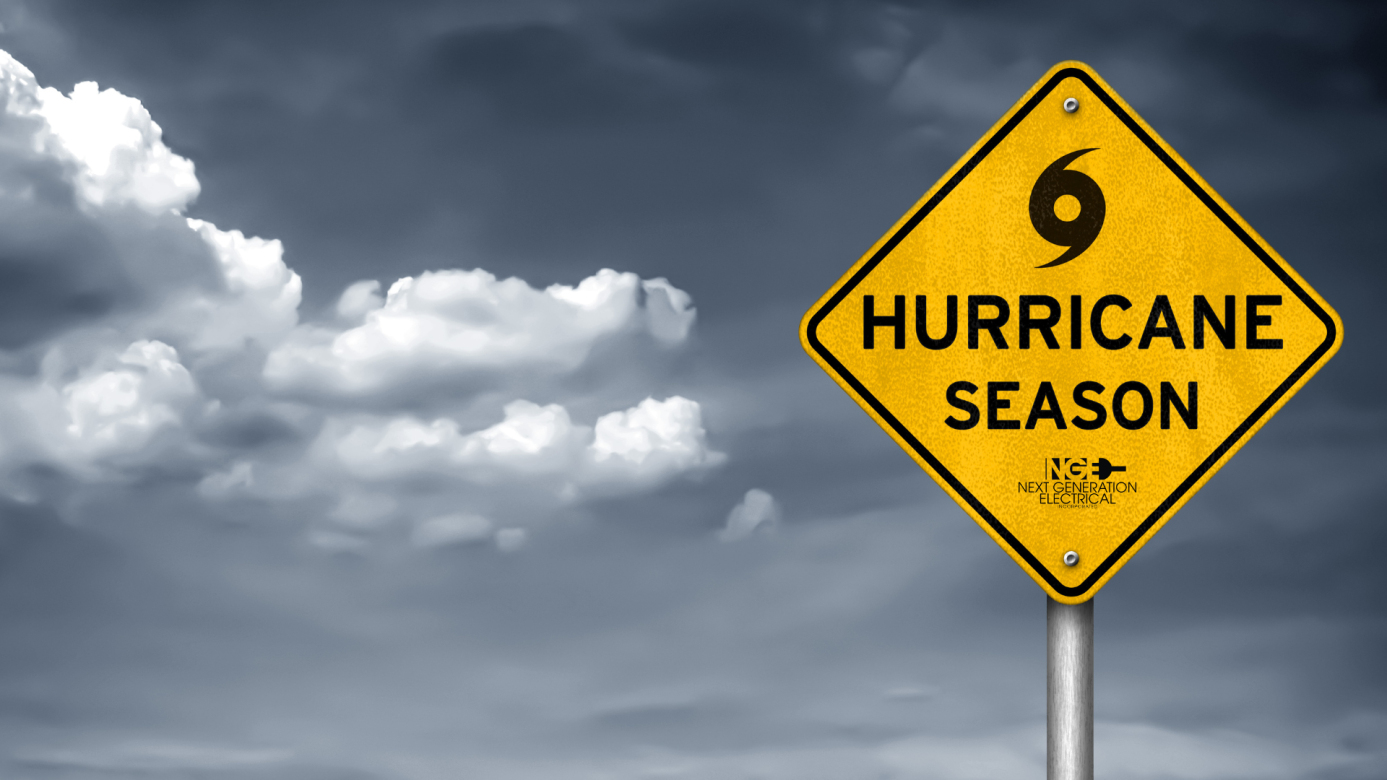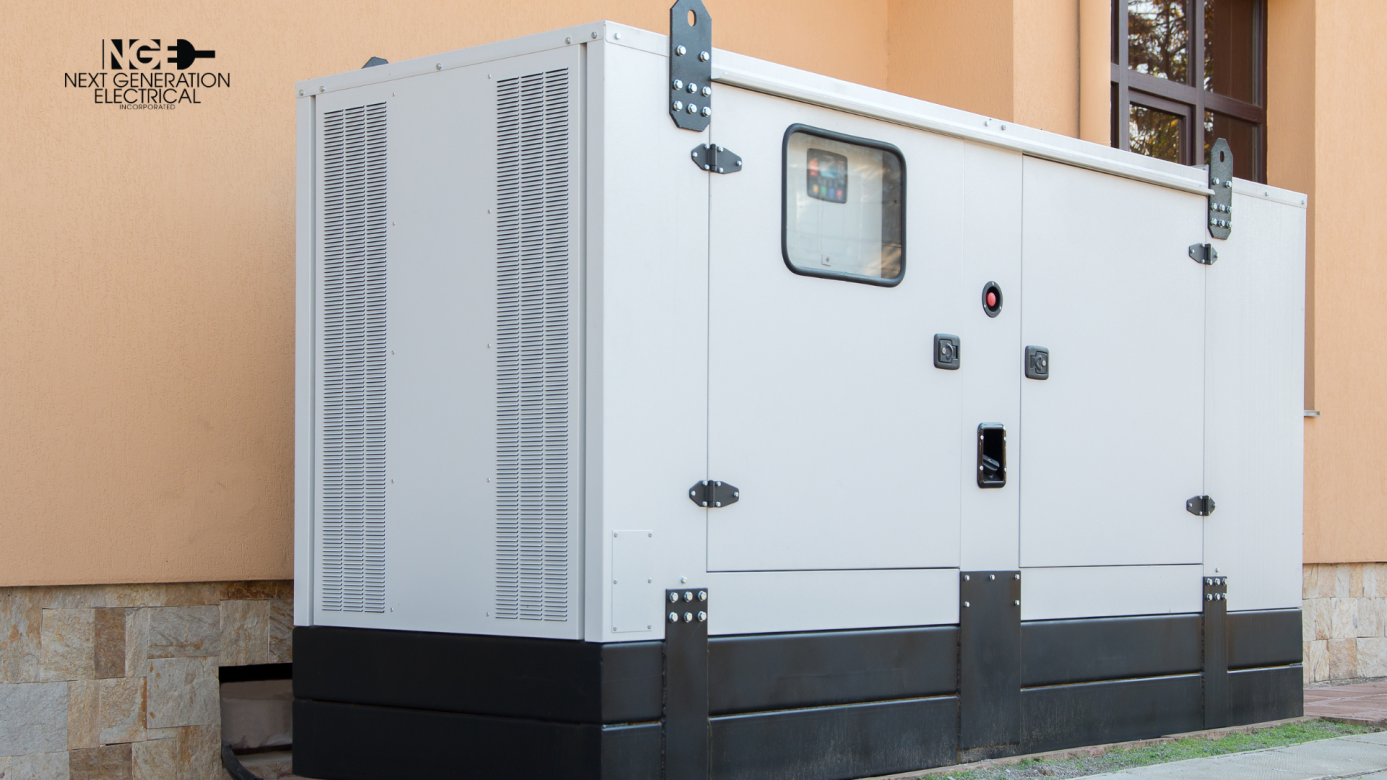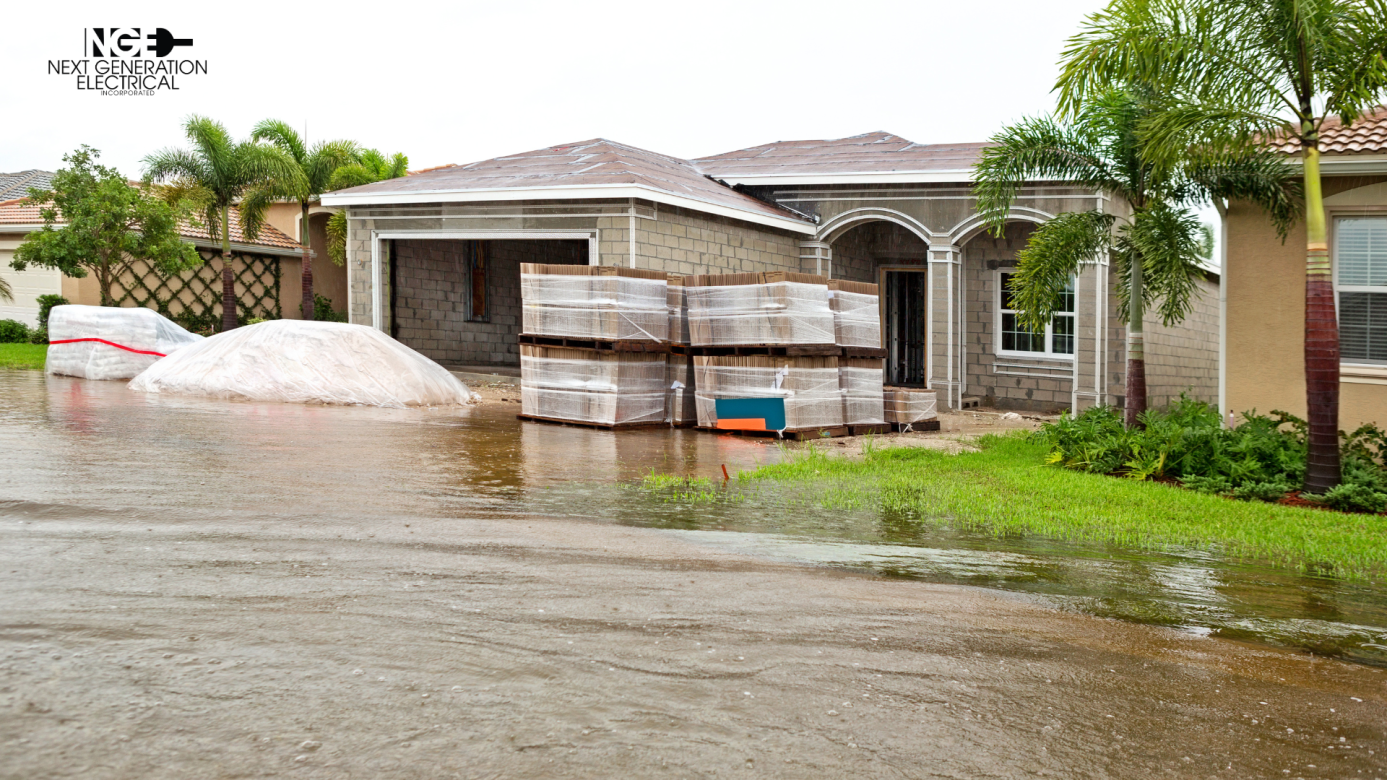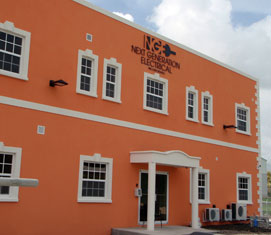Are you Hurricane Ready?
Are you Hurricane Ready?
And just like that, it is hurricane season again. With a near normal season predicted with at least 12 named storms, that still sounds like 12 too many. Better than living in hope is to be prepared, and we are making sure that you know how to protect your electrical items and yourself from the storm.
What is your first step to protect your electrical plant from a natural disaster? For the ordinary household and home office there are some steps we would suggest you take when you know that there is a storm coming. Here are our top 12 shown below:
- Unplug appliances: Before a hurricane or severe storm hits, unplug all non-essential electrical appliances and electronics. This will help protect them from power surges or potential electrical damage.
- Secure outdoor electrical equipment: If you have any outdoor electrical equipment, such as air conditioning units or generators, make sure they are properly anchored or secured. Strong winds can cause these items to become projectiles, posing a risk to your property and others.
- Use surge protectors: Invest in good quality surge protectors to safeguard sensitive electronic devices. Plug your valuable electronics, such as computers, TVs, and gaming consoles, into surge protectors/automatic voltage regulators (AVR) to help protect them from power surges caused by lightning strikes or electrical disruptions.
- If you live in flood-prone areas make sure that your surge protectors/AVRs/extension cords are raised off the floors so that they don’t immediately become submerged at the first sign of flooding. Submerged connections present a big hazard to you and your family.
- Backup power source: Consider purchasing a backup power source, such as a generator, an uninterruptible power supply (UPS), or a Battery Energy Storage System (BESS) to ensure a continuous power supply during a power outage. Your BESS can be either grid-tied or charged by your PV installation. Follow the manufacturer's instructions for safe usage and maintenance. For your generators or whole home solution on the UPS and Battery Energy Storage System (BESS), remember that you can give us a call for their installation.
- Keep emergency lighting: Have battery-powered flashlights and lanterns readily available for use during power outages. Avoid using candles or open flames as a source of light due to fire hazards.
- Stock up on batteries: Ensure you have an ample supply of batteries for your emergency devices. Check and replace batteries in flashlights and portable radios regularly to maintain their functionality.
- Store important documents electronically: Make digital copies of essential documents like insurance policies, identification papers, and medical records. Store them securely on a cloud service or a portable hard drive to prevent loss or damage during a storm.
- Install a surge protector for your home: Consider having a whole-house surge protector installed by a qualified electrician. This device can help safeguard your entire electrical system from power surges caused by lightning strikes or other electrical disturbances.
- Safely disconnect power: If instructed by authorities or if you need to evacuate, shut off the main circuit breaker in your home. This step helps prevent electrical hazards and potential fires while you're away.
- Post-storm inspections: After the storm has passed, visually inspect your electrical system for any visible damage. If you notice any frayed wires, loose connections, or signs of water damage, contact a licensed electrician to assess and repair the issues.
- Remember, electrical safety is crucial during severe weather events. If you're unsure about any electrical aspect of hurricane preparedness or encounter an electrical emergency, consult a qualified electrician for assistance.
Be safe this hurricane season and look out for your neighbours.






